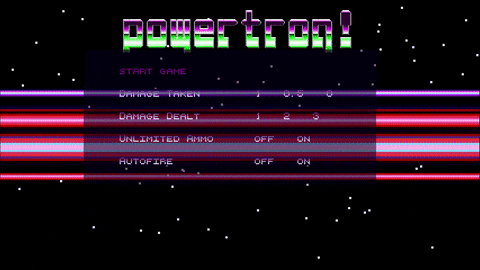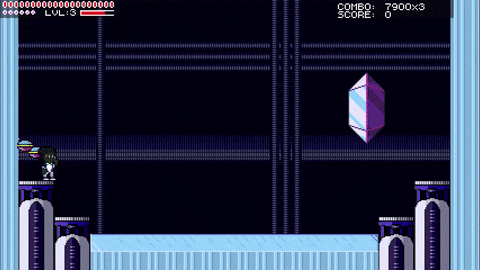
Featured Blog | This community-written post highlights the best of what the game industry has to offer. Read more like it on the Game Developer Blogs or learn how to Submit Your Own Blog Post
Permission to cheat
I attempt to make an argument for why I think you should let your players cheat within your single player game. Or at least, why I decided to let them.


First of all, before you start to read my aimless rambling about the topic of cheating in videogames, please go and read Amr Al-Aaser’s and Kate R’s pieces about the same subject. Because unlike me, those people are actually good writers and they’re much more adept at getting to the root of what cheating in games can be.
Now if you’ve finished reading those pieces (and if you haven’t, what is wrong with you?), please feel free to hear a little bit about my past as a videogame cheater and why I decided to let you cheat as much as you want in my own videogame.
First of all though, what kind of Videogame am I making? The game's called "Splinter Zone", it's my attempt using the basic concept behind Mega Man 9's "Endless Attack" mode and turn it into a fast paced and very loud Arcade platformer. The game is currently in development and will probably be released on Steam within the next few weeks/months. There's also an early Version available for sale on itch.io, if anyone wants to take a closer look.
Anyway, back to the part of about cheating.
As many kids in the late 80s and early 90s in Europe, my first experience with videogames didn’t came via a classic gaming console, it came through playing games on a home computer. For me it was the Amiga 500. We had a lot of games for the Amiga, though only a very few of them were actually bought. Most of the games we had, we got through “other sources”(meaning they were all pirated).
Probably one of my favourite games on the Amiga was Rick Dangerous 2. A game that, as I later found out was generally considered to be quite awful. However I never really encountered said awfulness, mostly because our copy of Rick Dangerous 2 came with a build-in trainer. In that trainer, which was put in by the nice people who originally cracked the game, you had the option to switch on things like unlimited lives and ammunition. This way the game was still incredibly unfair and hard, but it took away enough of said unfairness, to make it enjoyable.
With the years, I started playing games on different platforms, but I kept cheating where I could. To this day, I never finished a playthrough of Baldur’s Gate 2, without extensive cheating. Yet I still consider it to be among my favourite games of all time. Cheating in Baldur’s Gate didn’t take away any of the enjoyment I had out of the game. All I did was remove some of the tedium, by giving myself good equipment and boosting my levels.

When I’m working on Splinter Zone, I’m always concerned about the game being too easy, or too short. Of course that leads to me making the classic mistake of making the game way too hard for anyone else to play.
Everytime I let other people, be it friends or complete strangers, play it, the main feedback I got was "this is too hard.", or "I'm not good enough for this to play it.", which to be honest is even more disheartening. I want people to have a good time when they play my game, I don't want them to feel inadequate.
In my worry that people would plow through the game too quickly, I alienated almost everyone else.
I did try to make it easier: I gave people more opportunities to heal, I reduced some of the damage they take, and instead of adding a set of ultra-hard levels (what I originally wanted to do), I’ll probably make a set of one’s that are really easy. The game will still get hard, but I try to build it in such a way, that you’ll actually have to be familiar with it, before you encounter those elements.
The game might still not be easy enough for everyone though. After all, part of the enjoyment in it comes through learning how to overcome its challenges. So how can I make the game more accessible, without having to re-build most of what I already made?
By allowing them to cheat, of course.
I added a menu to Splinter Zone, where you can adjust not only the damage you take from enemies (up to the point, where you don’t take any damage at all), you can also adjust the damage you deal, enable autofire (which means you don’t have to button mash anymore), give yourself unlimited ammunition and if you want, you can even remove all enemies from the game.
These options don’t remove all of the challenges, for example you can still die by falling into a pit. However, it should now be possible for way more people to play this game, than it was before. I also tried to make sure, that they are granular enough so that people can customize their experience. Not everyone wants to be invincible, but maybe the default damage is too high? Just set the enemy damage to 50% and you’re good to go!

To be honest, there is no real downside to including cheats in your singleplayer game. Stuff like Achievements and Leaderboards don’t really count. You can still come up with challenges that work, even though people use cheats. Leaderboards tend to be populated with cheaters fairly quickly anyway (not mentioning the fact that you can also try and come up with a different approach to score attack games than just a simple leaderboard). And also: Who cares? What’s so terrible about someone getting a virtual badge through slightly different means than you? It doesn’t take anything away from you, but not letting this other person find ways to enjoy the same game, takes something away from them.
So give your players the permission to cheat and be it only to give you an excuse to make a silly menu with wavy text and floating gradients.
Read more about:
Featured BlogsAbout the Author(s)
You May Also Like







.jpeg?width=700&auto=webp&quality=80&disable=upscale)








